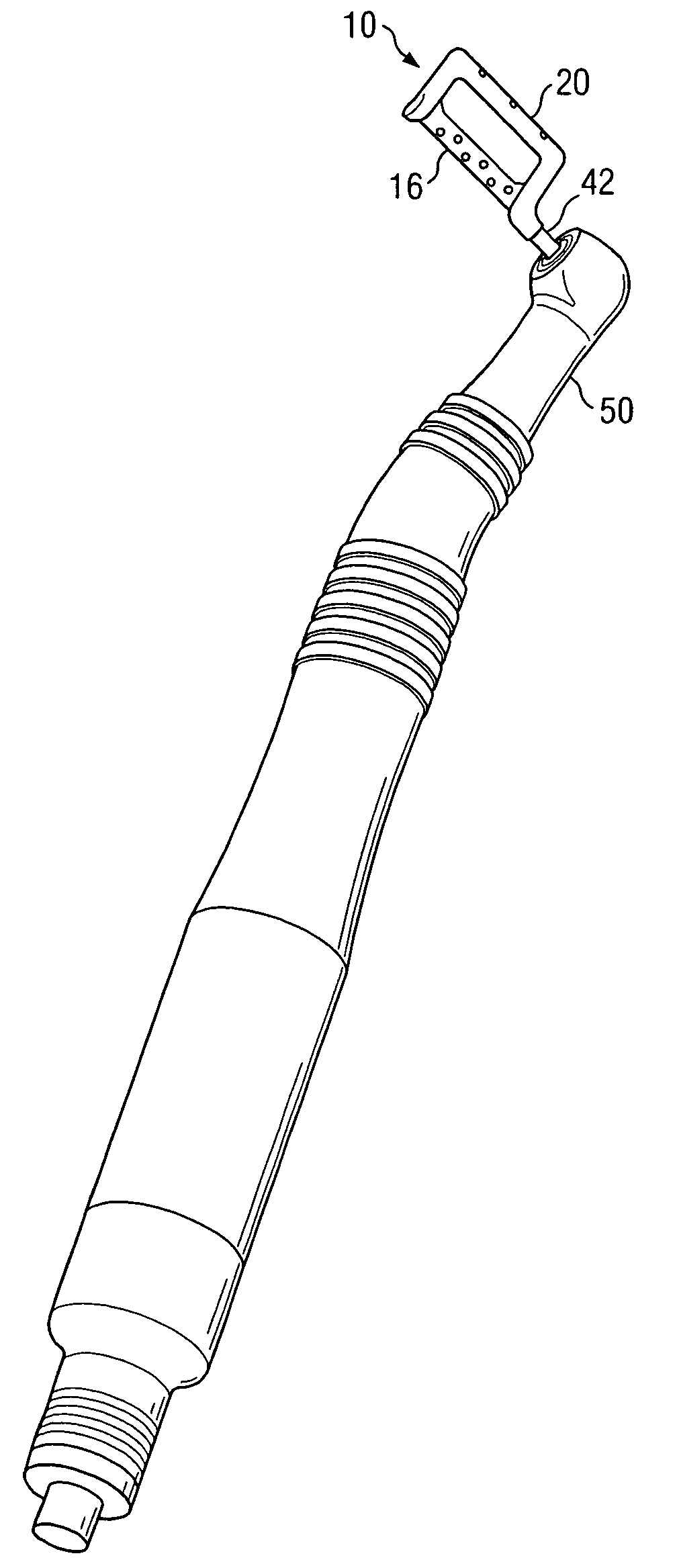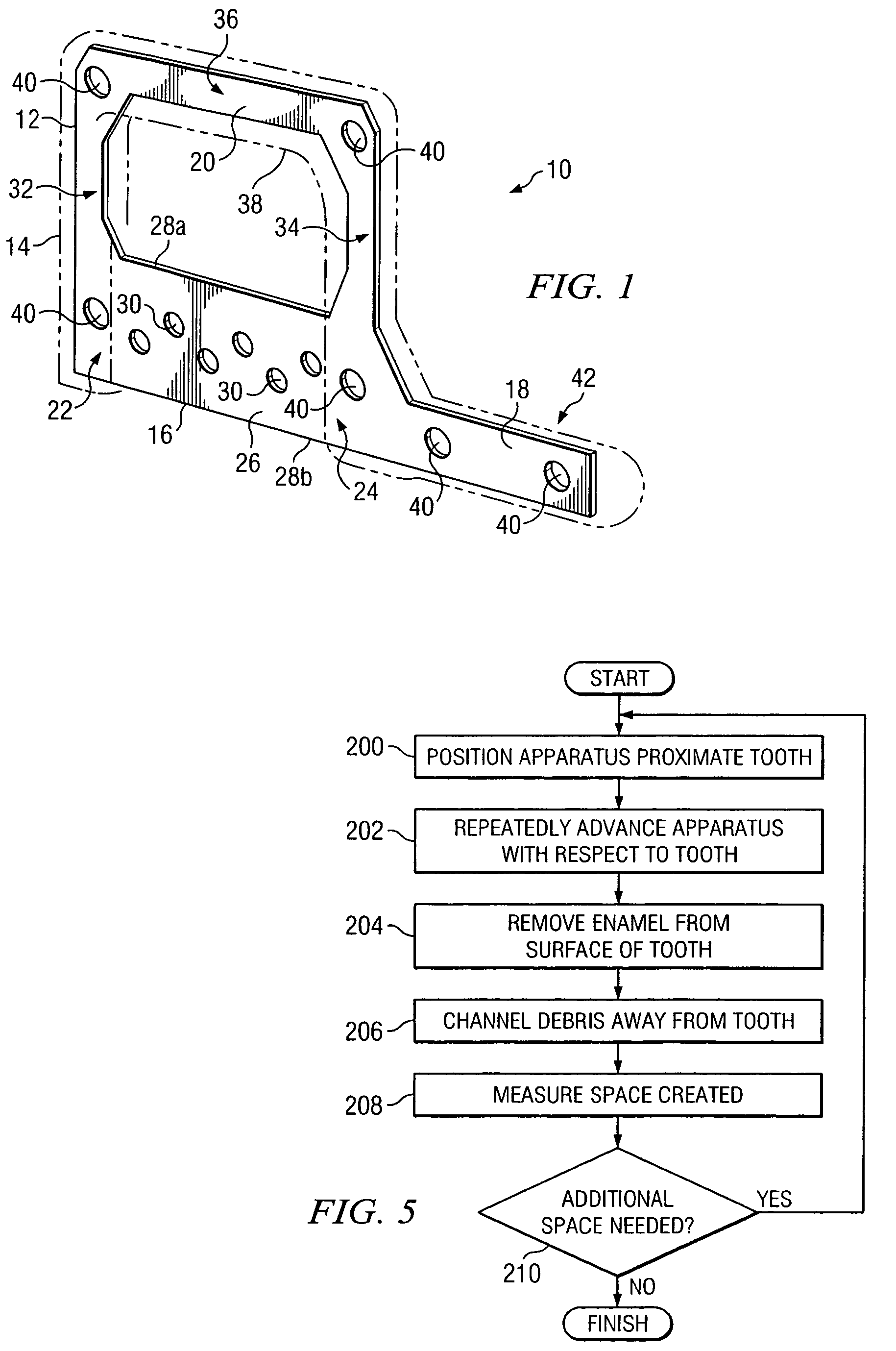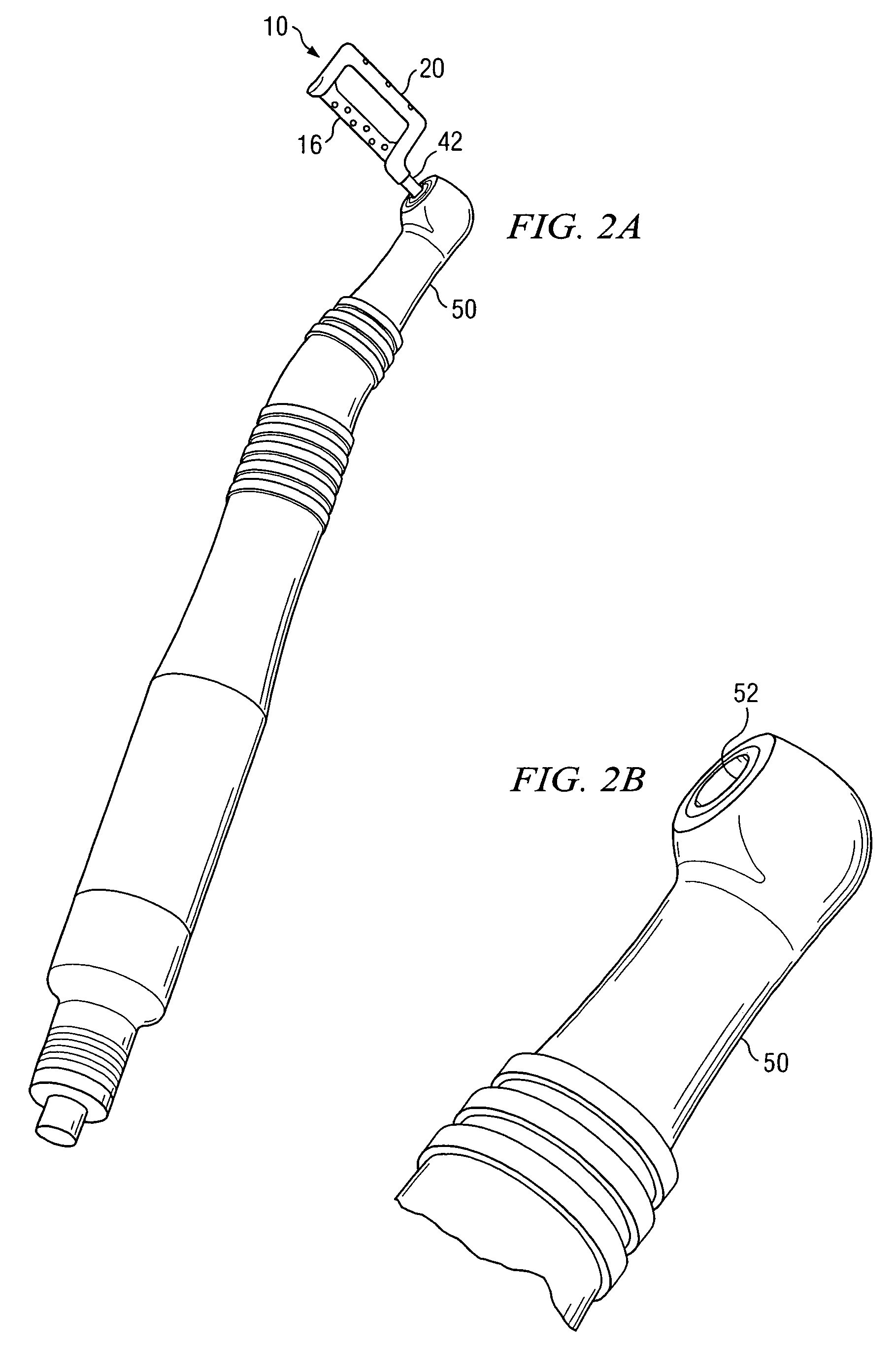Apparatus and method for removing enamel from a person's tooth
a technology of enamel removal and tooth, applied in the field of dental and orthodontics, can solve the problems of increasing the length and increasing the cost of the procedure, and affecting the effect of the patient's oral health, so as to reduce or eliminate the problems and disadvantages associated with the procedur
- Summary
- Abstract
- Description
- Claims
- Application Information
AI Technical Summary
Benefits of technology
Problems solved by technology
Method used
Image
Examples
Embodiment Construction
[0015]According to the present invention, an apparatus and method are provided for removing enamel from one or more of a person's teeth. The removal of enamel from one or both of two adjacent teeth may create space, or additional space, between the adjacent teeth. Thus, an IER procedure may be performed to prevent or treat the overcrowding of teeth associated with malocclusion and avoid the need for one or more tooth extractions. Additionally or alternatively, an IER procedure may be used to recontour or otherwise alter the size and shape of one or more of the person's teeth to provide a more aesthetically pleasing result.
[0016]FIG. 1 illustrates an example apparatus 10 for removing enamel from a person's tooth. Apparatus 10 includes a frame 12 and a body 14. In certain embodiments, frame 12 is a one-piece frame integrally-formed from a single piece of material. Frame 12 may be made of steel or another metal. Body 14 is formed around frame 12 to envelop or otherwise cover appropriat...
PUM
 Login to View More
Login to View More Abstract
Description
Claims
Application Information
 Login to View More
Login to View More - R&D
- Intellectual Property
- Life Sciences
- Materials
- Tech Scout
- Unparalleled Data Quality
- Higher Quality Content
- 60% Fewer Hallucinations
Browse by: Latest US Patents, China's latest patents, Technical Efficacy Thesaurus, Application Domain, Technology Topic, Popular Technical Reports.
© 2025 PatSnap. All rights reserved.Legal|Privacy policy|Modern Slavery Act Transparency Statement|Sitemap|About US| Contact US: help@patsnap.com



